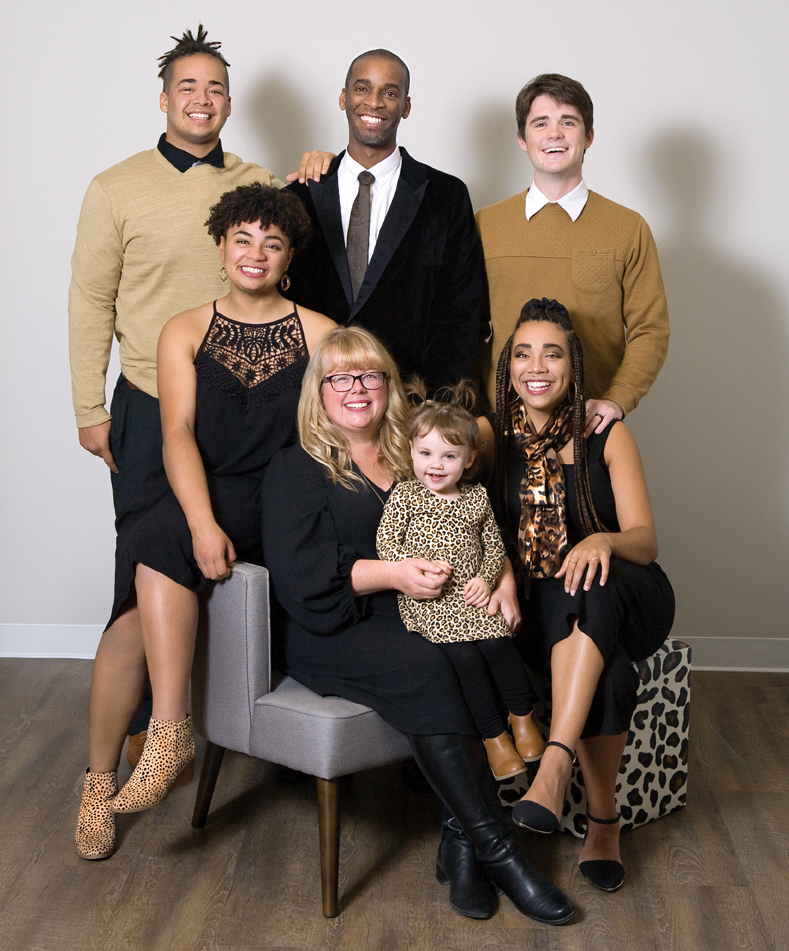
Careers were set and 3 children launched, and then a text message changed their lives
By Barbara Aggerholm
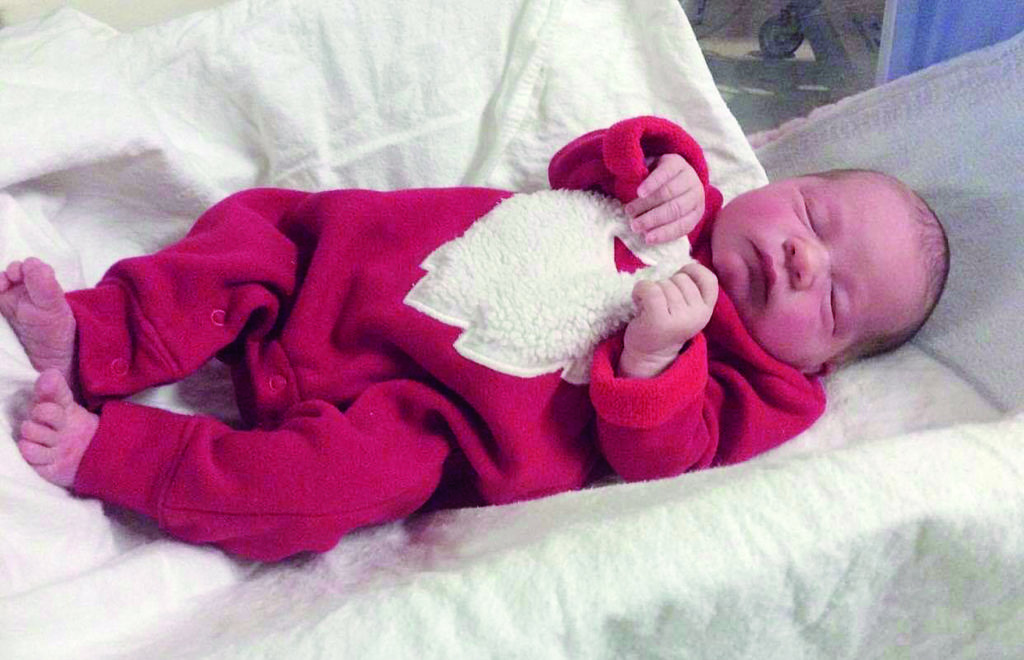
They were in their 40s, their careers on track, and it wouldn’t be long before all three of their adult children left home. Three days before Christmas, they were packing their bags for another Hoyte family adventure. Then came the thunderbolt. A photograph of a newborn baby in a Santa sleeper appeared out of the blue in a text message from a relative. The little girl had been born Dec. 20, 2018, to a cousin who was unable to care for her. The baby was headed for foster care on Christmas Eve day.Would Tara, cousin of the baby’s mother, and Tara’s husband Adrian, consider taking the baby into their home and raising her as their daughter? Would the Hoyte family, including grown-up children, Aaron, Zoe and Maya, welcome a little sister? “This is the first we knew there was a child,” says Tara, now 44. “I cried. I didn’t know if we could do this. We sat there in silence.” Then they talked all night, and prayed. “We’re Christians. We’re called to look after widows and orphans in the Bible. . . . How can we not?” she asked herself.
“It’s one of those situations where you know the right thing to do,” says Adrian, 45. “That is a louder voice than the voice calculating how old you will be when she’s in Grade 1 or when you’re walking her down the aisle.” Talking about that life-changing text, and sharing the trials and tribulations that followed, make the couple appreciate each time they tell their story that they have received a gift, “a Christmas miracle.” Because blue-eyed Lydia is 100 per cent their daughter now. She is two years old in December, a ball of energy and curiosity with three grown-up siblings who love her and can’t imagine life without her. “When you look at the news, there is so much negativity,” Adrian says. “Telling this personal journey energizes us and reminds us how blessed we were, and are. All the times that sucked, we hardly remember.”
In interviews on a fall evening on the front porch of their Cambridge home, family members – friendly and outgoing – speak frankly about the path they took to bring the baby home. On this day, Maya, 19, has just returned from her electrical co-op job. Aaron, 22, is finished his college paramedic classes for the day, and Zoe, 20, and her husband, Isaac Watson, recently married and living with Zoe’s grandparents nearby, have arrived for a visit with Lydia. Everyone takes turns looking after the energetic, chatty little girl inside the house. There’s a lot going on in this household. “Our front door is a revolving door,” says Tara, laughing.
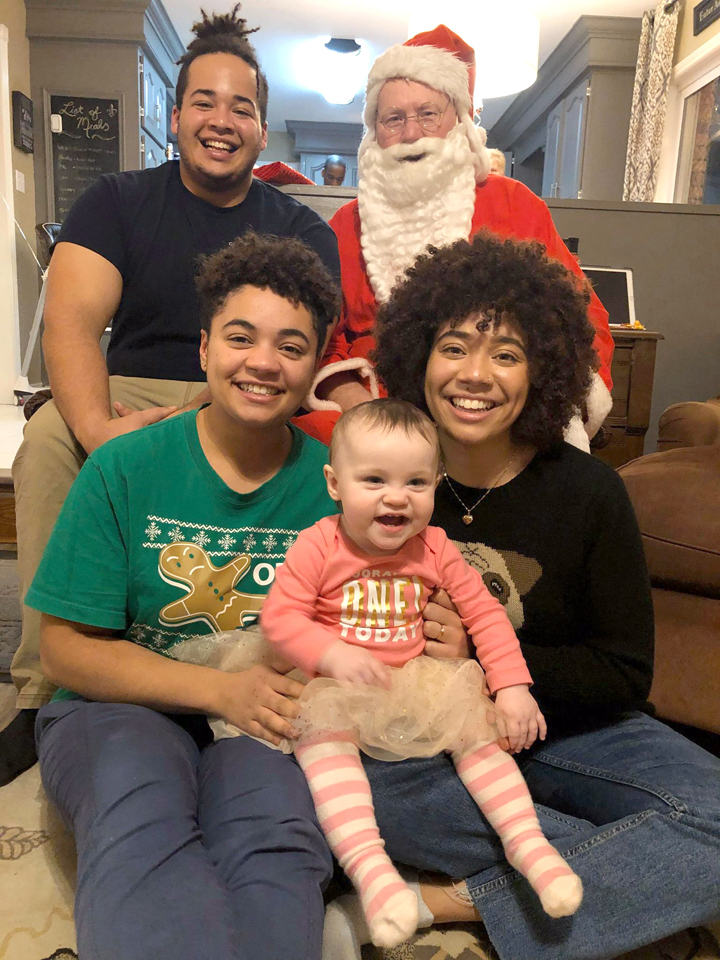 It’s not so long ago that Tara, a communications specialist, and Adrian, an elementary school teacher, married 23 years, were calling a family meeting to talk about the unnerving prospect of bringing Lydia home. “There were a lot of unknowns. We didn’t know how it would all turn out. But we wanted to know: are you willing to be along for the ride?” Tara says. Independent-minded, middle child Zoe, then 18 and a first-year Wilfrid Laurier University student living on her own in Brantford, had a lot of questions for her parents. “My initial reaction . . . was, why are we trying to take in a baby when you have three kids already trying to go through different things?” she asked. She wondered how it would affect her life and the lives of her siblings. “What is our role in this? “I wasn’t really thinking with my heart,” says Zoe, who is working full time before heading next fall to study law in England. “I was thinking of logistics. Life was going to be a lot different.” Meanwhile, big brother Aaron’s first reaction was: “I love babies and kids. Let’s do it.” But Aaron, in his final year of the paramedics program at Conestoga College, realized he’d soon be starting a career and leaving home. He wondered how his parents would manage when he and his siblings all left home eventually. “Will my parents be able to take the full load?” he asked himself. “They’re starting at square one.” He was confident of one thing though. “They’ve got an overabundance of love.” Maya, who’s on a co-op work term as she studies to be a licensed electrician, says she liked the idea that she wouldn’t be the family’s youngest anymore. But she was still a bit of a “wild card” on the whole idea of bringing a baby home, she says. “I’m not a fan of babies,” says Maya, smiling. “But family always comes first. My siblings have done that for me and I will do that for her.” That was it. They were in.
It’s not so long ago that Tara, a communications specialist, and Adrian, an elementary school teacher, married 23 years, were calling a family meeting to talk about the unnerving prospect of bringing Lydia home. “There were a lot of unknowns. We didn’t know how it would all turn out. But we wanted to know: are you willing to be along for the ride?” Tara says. Independent-minded, middle child Zoe, then 18 and a first-year Wilfrid Laurier University student living on her own in Brantford, had a lot of questions for her parents. “My initial reaction . . . was, why are we trying to take in a baby when you have three kids already trying to go through different things?” she asked. She wondered how it would affect her life and the lives of her siblings. “What is our role in this? “I wasn’t really thinking with my heart,” says Zoe, who is working full time before heading next fall to study law in England. “I was thinking of logistics. Life was going to be a lot different.” Meanwhile, big brother Aaron’s first reaction was: “I love babies and kids. Let’s do it.” But Aaron, in his final year of the paramedics program at Conestoga College, realized he’d soon be starting a career and leaving home. He wondered how his parents would manage when he and his siblings all left home eventually. “Will my parents be able to take the full load?” he asked himself. “They’re starting at square one.” He was confident of one thing though. “They’ve got an overabundance of love.” Maya, who’s on a co-op work term as she studies to be a licensed electrician, says she liked the idea that she wouldn’t be the family’s youngest anymore. But she was still a bit of a “wild card” on the whole idea of bringing a baby home, she says. “I’m not a fan of babies,” says Maya, smiling. “But family always comes first. My siblings have done that for me and I will do that for her.” That was it. They were in.
The day before Christmas, the whole family visited the police station to get police checks as instructed by a Family and Children’s Services social worker to get the ball rolling as quickly as possible. But there was a wrinkle. Adrian had to be fingerprinted because a person of interest to police had the same birth date as he did. He’d have to book an appointment to get it done. However, after hearing their story, a police officer graciously consented to do the fingerprinting then and there. It was the first of several roadblocks that seemed to clear almost magically during the process. That Christmas Eve, the family couriered the results of the police checks to the social worker managing the case along with requested financial records. Then they were told to carry on with their lives and try not to think about it. The baby went into a foster home for the time being. It was impossible not to think about her. Tara bought baby outfits on their family’s Christmas road trip to Nashville, New Orleans and a coastal town in Alabama. They felt like they were on a rollercoaster. “We had no guarantees at that point” that the baby would be theirs, Adrian says. Two months later, in February 2019, they were contacted for a home study. It would be the beginning of months of social worker meetings and interviews, filling out endless forms and persevering through stressful court dates. In March, they met the infant for the first time. She was three months old. “I was terrified. She’s a baby. It’s been so long,” Tara says. “That meeting, it hit me. Even with all the support, this will be squarely on my shoulders. I remember crying and thinking, am I equipped to do this? Do I have the energy?”
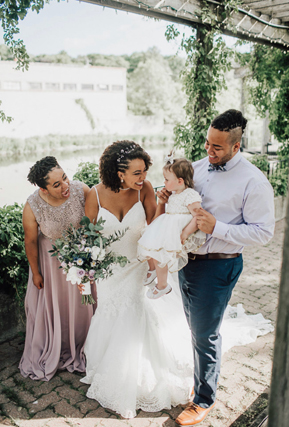 Memories flooded Adrian when he held Lydia in his arms. “Having raised three kids, it’s almost like coming home,” he says. “It felt natural. It felt normal. She just sort of snoodled in. “She felt like hot chocolate on a cold day.” Aaron was overwhelmed. “It was a magical moment,” he says. “This is my baby sister. I was crying. I was a mess.” “Just looking at her blue eyes, there was no looking back,” Maya says. Zoe says she wondered how she could have been uncertain. “I couldn’t believe I had those thoughts,” she says. She thought of her parents, of “the sacrifices they’re making and this beautiful baby.” Soon, Lydia was coming for visits and overnighters at their home. Then, in May, she was allowed to come home with them to stay in a legal kinship relationship until her status was finally decided. Aaron offered to move into the basement so Lydia could have his upstairs bedroom. In the second semester of her last year of high school, Maya gave up half days of classes so she could look after Lydia while her mother, who had traded full-time work for part-time, could go to her job. “The guidance counsellor said I could do it with all the credits I had,” Maya says. “I had a few weeks of parenting classes before I watched her.” The parents learned about safety rules that had changed since their children were young – things like nestling the baby in a sleep sack on a bare mattress with no Teddy bears, just a little “sleepy square” that she likes to touch. “There is no sleeping if she doesn’t have that,” Tara says.
Memories flooded Adrian when he held Lydia in his arms. “Having raised three kids, it’s almost like coming home,” he says. “It felt natural. It felt normal. She just sort of snoodled in. “She felt like hot chocolate on a cold day.” Aaron was overwhelmed. “It was a magical moment,” he says. “This is my baby sister. I was crying. I was a mess.” “Just looking at her blue eyes, there was no looking back,” Maya says. Zoe says she wondered how she could have been uncertain. “I couldn’t believe I had those thoughts,” she says. She thought of her parents, of “the sacrifices they’re making and this beautiful baby.” Soon, Lydia was coming for visits and overnighters at their home. Then, in May, she was allowed to come home with them to stay in a legal kinship relationship until her status was finally decided. Aaron offered to move into the basement so Lydia could have his upstairs bedroom. In the second semester of her last year of high school, Maya gave up half days of classes so she could look after Lydia while her mother, who had traded full-time work for part-time, could go to her job. “The guidance counsellor said I could do it with all the credits I had,” Maya says. “I had a few weeks of parenting classes before I watched her.” The parents learned about safety rules that had changed since their children were young – things like nestling the baby in a sleep sack on a bare mattress with no Teddy bears, just a little “sleepy square” that she likes to touch. “There is no sleeping if she doesn’t have that,” Tara says.
One court date led to another until finally it was the day that Tara calls their “gotcha day.” On March 2, 2020, Lydia, their kin, legally became their responsibility. But the day wasn’t without trepidation. The birth mother announced her disagreement with the way the case should move forward. And it looked like the court might not have time to hear the case at all that day. Lawyers got talking and the nervous couple went to lunch. “We had over 100 people praying for that court date,” Tara says. They were astonished and elated when they returned to court and were told the birth mother had set aside her objections. Tara and Adrian were given full custody, 100 per cent responsibility, for Lydia. “She’s your daughter,” they were told. “In our minds, that’s a miracle,” Tara says.
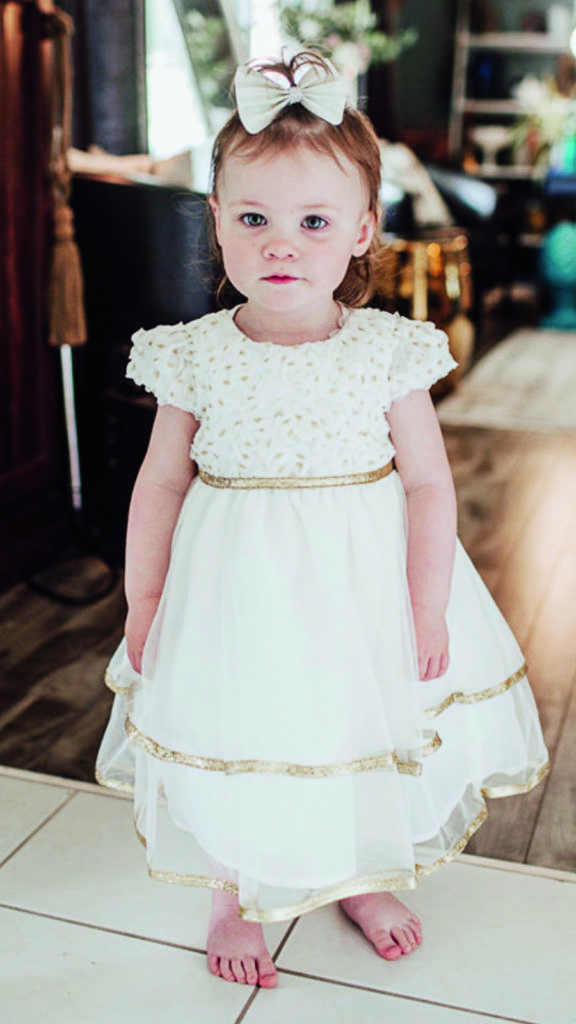 Shaken, they returned to court where the judge agreed, papers were signed and they went home as a new, larger family. Isolation rules due to COVID-19 actually gave them time to adjust – to a new schedule, new energy demands, new identities as parents and siblings, and yes, to changing diapers again. “We were teaching remotely March to June so I got to spend tons of time with Lydia,” Adrian says. It’s clear they are no longer entering the “on-ramp to empty nesting,” he says. “Before, we were the super-young parents that didn’t fit in and now we’re the super-old parents that don’t fit in,” Tara says. She’s tickled by the fact that now Adrian manages the same questions that people put to her when she was out walking with their three small children. “People would ask if I was the nanny because we look different,” she says. “Now I find it hilarious that he’s holding a white baby and people are, ‘What the heck?’” While it’s all-hands-on-deck at home, Tara and Adrian know it’s their responsibility to raise this little girl. They’re coping with new experiences, including lack of sleep while Lydia is teething. “The older she gets, the less she sleeps,” Tara says. Tara and Adrian are quick to answer her cries at night because they’re conscious of the demanding hours that Aaron and Maya are putting in at their jobs and classes. Tara continues to work part time and freelance. Lydia has started going to a home day-care for a few days a week.
Shaken, they returned to court where the judge agreed, papers were signed and they went home as a new, larger family. Isolation rules due to COVID-19 actually gave them time to adjust – to a new schedule, new energy demands, new identities as parents and siblings, and yes, to changing diapers again. “We were teaching remotely March to June so I got to spend tons of time with Lydia,” Adrian says. It’s clear they are no longer entering the “on-ramp to empty nesting,” he says. “Before, we were the super-young parents that didn’t fit in and now we’re the super-old parents that don’t fit in,” Tara says. She’s tickled by the fact that now Adrian manages the same questions that people put to her when she was out walking with their three small children. “People would ask if I was the nanny because we look different,” she says. “Now I find it hilarious that he’s holding a white baby and people are, ‘What the heck?’” While it’s all-hands-on-deck at home, Tara and Adrian know it’s their responsibility to raise this little girl. They’re coping with new experiences, including lack of sleep while Lydia is teething. “The older she gets, the less she sleeps,” Tara says. Tara and Adrian are quick to answer her cries at night because they’re conscious of the demanding hours that Aaron and Maya are putting in at their jobs and classes. Tara continues to work part time and freelance. Lydia has started going to a home day-care for a few days a week.
“Some days, you’re to-the-bone exhausted,” Tara says. This summer, during COVID-19 restrictions, they were juggling the needs of their youngest daughter and their eldest daughter who was getting married. At times, it was a case of a “horrible diaper rash and a crying bride. “I was physically exhausted from the youngest daughter and emotionally exhausted from the eldest daughter. I wanted to fix everything. I was in two different parent worlds at once,” Tara says.Adrian comes home tired after a day of COVID-19 restrictions while he moves from classroom to classroom to teach core French. Then, there are the emails, marking, producing worksheets and writing report cards that demand computer time at home. He’s conscious of his
priorities. “I can’t have Lydia thinking computer time is more valuable than her,” he says. “I honestly feel the same as the children I birthed,” Tara says. “She’s mine.” They’re teaching her, but she’s teaching them about themselves as well. Maya, who has a curious and mechanical mind, likes to open things up with Lydia to look inside. She never thought she’d be giving piggy-back rides and having tea parties with Lydia and a singing tea kettle. As an electrician student, Maya has to be strong and tough. “One of the guys at work says I’m more soft now,” she says, laughing. Aaron and Lydia do workouts together. Christmas is a big deal in the Hoyte family and Adrian is always planning the experience they’ll give their children. There have been wooden nutcracker decorating contests, contests to buy the best, sentimental $20 gift from a thrift store, escape room puzzles and gingerbread house decorating, which Lydia assisted last year. In past years, Tara decorated up to 11 Christmas trees for the house. “We’re down to seven,” Tara says. There’s a Christmas Eve church service and a big breakfast with extended family on Christmas Day.
Never ever, ever, have Tara and Adrian second-guessed their decision to take the little girl into their hearts and home. “Everywhere Lydia goes, she brightens up rooms and faces,” Adrian says. “She gives hope to people and it opens up our eyes to the need. For every Lydia, there are 20 to 30 children who need a home. “You just decide to love her and when that decision is made, all the rest of the decisions are easy.”
